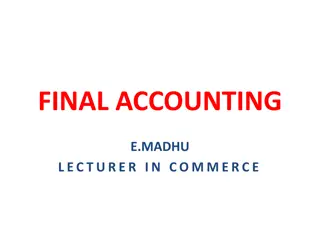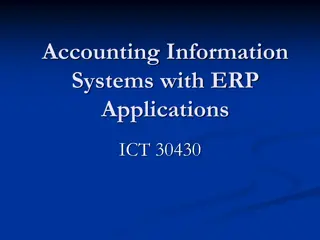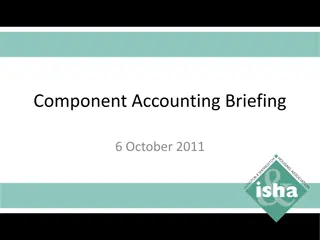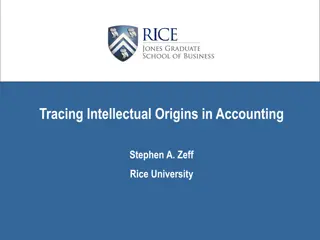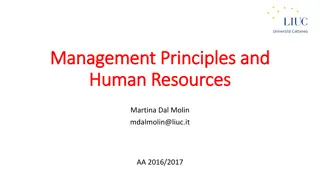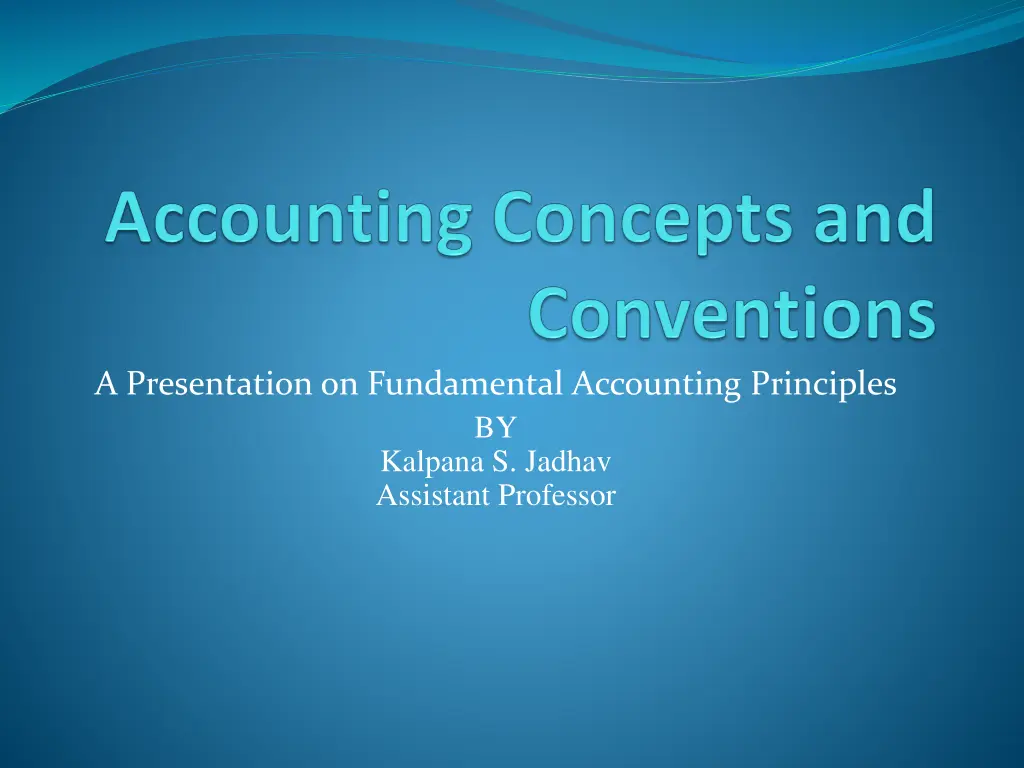
Fundamental Principles of Accounting: A Comprehensive Overview
Explore the foundational principles of accounting with detailed explanations of key concepts and conventions. Learn about Business Entity, Money Measurement, Going Concern, Cost, Dual Aspect, Realization, Accrual, Matching concepts, and Accounting Conventions. Enhance your understanding of financial reporting and transparency in this informative presentation.
Download Presentation

Please find below an Image/Link to download the presentation.
The content on the website is provided AS IS for your information and personal use only. It may not be sold, licensed, or shared on other websites without obtaining consent from the author. If you encounter any issues during the download, it is possible that the publisher has removed the file from their server.
You are allowed to download the files provided on this website for personal or commercial use, subject to the condition that they are used lawfully. All files are the property of their respective owners.
The content on the website is provided AS IS for your information and personal use only. It may not be sold, licensed, or shared on other websites without obtaining consent from the author.
E N D
Presentation Transcript
A Presentation on Fundamental Accounting Principles BY Kalpana S. Jadhav Assistant Professor
Introduction to Accounting Concepts and Conventions Accounting concepts and conventions form the foundation of financial reporting and ensure consistency, reliability, and transparency in financial statements.
Accounting Concepts 1. Business Entity Concept 2. Money Measurement Concept 3. Going Concern Concept 4. Cost Concept 5. Dual Aspect Concept 6. Realization Concept 7. Accrual Concept 8. Matching Concept
Business Entity Concept A business is separate from its owner.
Money Measurement Concept Only transactions measurable in money are recorded.
Going Concern Concept A business is expected to continue indefinitely.
Cost Concept Assets are recorded at their original cost.
Dual Aspect Concept Every transaction affects two accounts (debit and credit).
Realization Concept Revenue is recognized when earned, not when received.
Accrual Concept Expenses and revenues are recorded when incurred, not when paid.
Matching Concept Revenues are matched with related expenses in the same period.
Accounting Conventions 1. Consistency 2. Disclosure 3. Conservatism (Prudence) 4. Materiality
Consistency Accounting methods should be consistently applied over periods.
Disclosure All significant information should be disclosed in financial statements.
Conservatism (Prudence) Anticipate losses but not gains.
Materiality Financial statements should highlight material items that affect decision-making.
Importance of Accounting Concepts and Conventions - Ensures uniformity in financial reporting - Helps in decision-making - Enhances reliability and transparency - Provides a framework for recording transactions
Conclusion Accounting concepts and conventions ensure accuracy, transparency, and consistency in financial reporting, making them essential for businesses and stakeholders.


